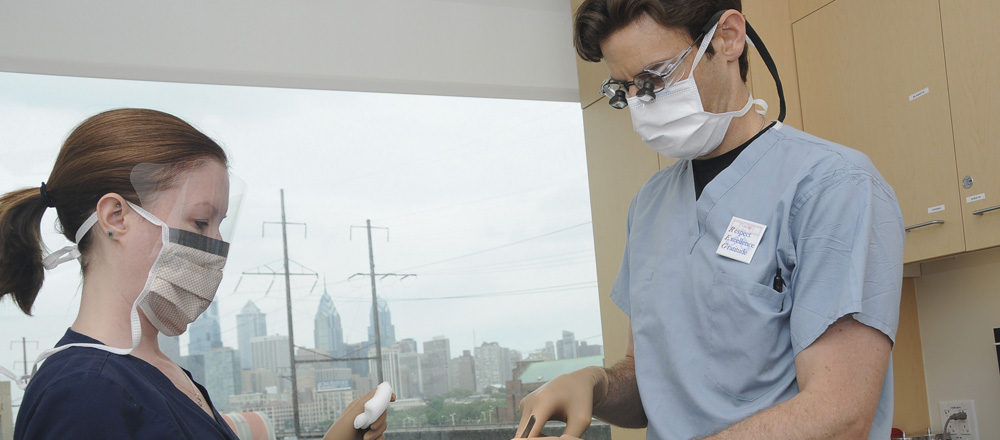
COVID-19 Tests before Mohs Micrographic Surgery
To ensure your safety, we test all Mohs micrographic surgery patients for COVID-19 within 24-48 hours of their surgery date. If the test confirms that you do NOT have an active COVID-19 infection, your Mohs surgery will proceed as planned. If the test shows that you DO have an active COVID-19 infection, your surgery will be postponed until you cannot transmit the virus.
Patients with skin cancer of the face, head or neck may require Mohs and reconstructive surgery. This type of surgery can also be used to remove rare or high risk skin cancers that occur on the trunk and extremities.
Mohs Surgery at Penn Offers Patients High Cure Rates
Penn's dermatologic surgeons are experts in the removal of skin cancer using this highly specialized surgical method. Penn's dermatologic surgeons are highly experienced in Mohs micrographic surgery, a procedure that combines a high cure rate with the sparing of healthy tissue for a better cosmetic and functional outcome.
Mohs micrographic surgery offers the best chance for completely removing skin cancer while conserving as much healthy skin as possible. It uses microscopic guidance to decrease the likelihood of missing cancer cells not visible at the skin surface thus avoiding large incisions that unnecessarily remove healthy skin and result in bigger scars.
At Penn Dermatology, Mohs surgery offers major advantages for patients including:
- Immediate microscopic evaluation during the procedure that confirms that the skin cancer is completely removed
- The highest published cure rates for many forms of skin cancer, making it less likely the cancer may grow back. The rate of cancer recurrence for patients who have their cancer removed using Mohs surgery is just 2 percent, compared to 10 percent for patients who do not have the procedure
- Maximal preservation of healthy skin for the best possible cosmetic and functional results
The precision of Mohs surgery is especially useful for the treatment of skin cancers that exhibit the following appearance or characteristics:
- Large in size
- Poorly defined edges
- Skin cancer that returns after previous treatments
- Skin cancer located on areas of the body where it is critical to keep the surgical incision as small as possible to obtain excellent cosmetic and functional outcomes
Penn’s dermatologic surgeons are board-certified dermatologists who have completed advanced training in Mohs micrographic surgery through fellowships sponsored by the American College of Mohs Surgery.
The Mohs procedure is named for Frederic E. Mohs, MD, a general surgeon who developed the technique in 1938 in Wisconsin.
Learn more about Mohs surgery and reconstruction at Penn Dermatology
In This Section
Mohs surgery is a highly specialized, precise surgical technique used to treat skin cancer, especially basal cell or squamous cell carcinoma.
Penn's world renowned Dermatologists provide expert Mohs and Reconstructive Surgery. Browse our list of physicians.